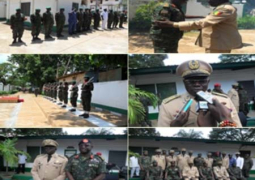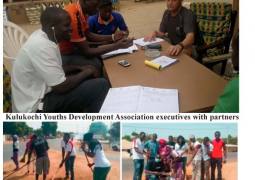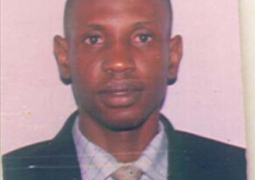The 47th Ordinary Session of the African Commission on Human and Peoples' Rights (ACHPR) commenced on Wednesday at the Laico Atlantic Hotel in Banjul.
The two-week session, which runs from 12th to 27th May 2010, brought together as many as 200 delegates from across Africa and Europe, with a view to discussing issues affecting human rights and democracy.
The session began with a renewed call for member states to promote and protect human rights in Africa and the world at large.
The chairperson of the African Commission, Commissioner Reine Alapimi-Gansou, addressing delegates, said "whereas Africa has considerable assets which can contribute to its economic development, several human rights violations are perpetrated with impunity in state parties to the Charter. And this in those where there governance problems and where there is no hope for peace," she added.
"The same is true for those countries where relative peace prevails. Our Commission, therefore, needs to deploy greater efforts in the combat against torture, against the death penalty, the rights of human rights defender associations, and the rights of journalists.
"Our Commission should also convince the stakeholders to accept the right to be different and, in particular, to that of non-discrimination.
"It needs to commit the stakeholders to the scrupulous respect for the provision for the Charter," she continued.
"How democracy contribute to the advancement of human rights in Africa, sickened by its conflicts and weighed down by its historical past, in an Africa which today is still subject to poverty and to under-development?"
The Chairperson of the ACHPR went on to state that, "There is evident correlation between democracy, good governance and human rights, a necessary link which gives life to human rights in normative contexts, which take into account the general interest through a regular checking of the high performing, responsible and participative 'republican institutions' founded on a basis which guarantees multiparty democracy, the rule of law, and a system which guarantees the effective promotion and protection of human rights, of individual and collective liberties."
Speaking earlier, Julia Dolly Joiner, Commissioner for Political Affairs at the African Union Commission, noted that the promotion of human rights in Africa is a collective effort.
"Whilst we have a propensity to emphasise the role and responsibilities of state parties, we cannot and should not forget to remind ourselves that our success hinges on building wider ownership and ensuring that the burden of responsibility and action is shared across all sectors of the societies," she said.
"Building a culture of human rights and establishing the respect for human rights as a natural element of people to people engagements, requires that the human rights we talk about be internalised by each individual.
"It is after all, most often, at the level of individual interactions that rights are infringed. In as much as our humanism is best reflected in our interactions with others, our exercise of rights must also be predicated on our respect for the rights of others. This might go a long way in building the rights culture all our instruments and mechanisms are seeking to establish."
Participants of the NGO forum, in a statement read on their behalf by Mrs. Anna Forster, the Executive Director of African Center for Democracy and Human Rights Studies, stated that "it was observed that suppression of the freedom of expression, opinion, assembly and press was becoming the norm rather than the exception and, therefore, continue to be a cause for concern on our continent with formulation of draconian laws, harassment, intimidation, killings and arbitrary detention."
She added: "In this regard, the forum requests the Africa Commission to pay particular attention to the situation in Angola, Burundi, Central Africa Republic, The Democratic Republic of Congo, (DRC), Ethiopia, The Gambia, Eritrea, Nigeria, Senegal, Somalia, Sudan, Swaziland, Tunisia and Zimbabwe.
"We thereby request the African Commission to express solidarity with all journalists living under extreme persecution and to urge states to abolish repressive laws and ensure a conducive environment for the protection of journalists in Africa."
In his opening remarks, Hon. Edward Gomez, the Attorney General and Minister of Justice of The Gambia, pointed out that fundamental human rights should be respected by all and sundry, outlining some of the basic human rights which, he said, include the right not to be discriminated.
He also called for non-interference in the sovereignty and independence of states by so-called Western powers, while recognising the efforts of the African Commission on Human and Peoples Rights.
Other speakers included the Justice Minister of the Republic of Benin, Victor Topanou.
Read Other Articles In Article (Archive)

Visiting Senegalese CDS discusses collaboration with Gambia army
Jul 26, 2017, 11:54 AM



